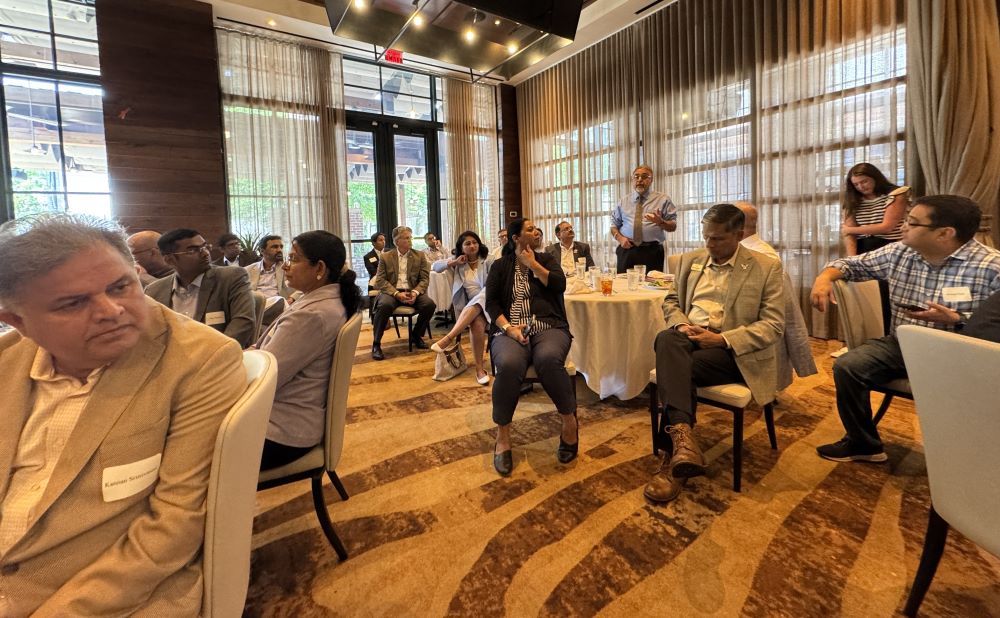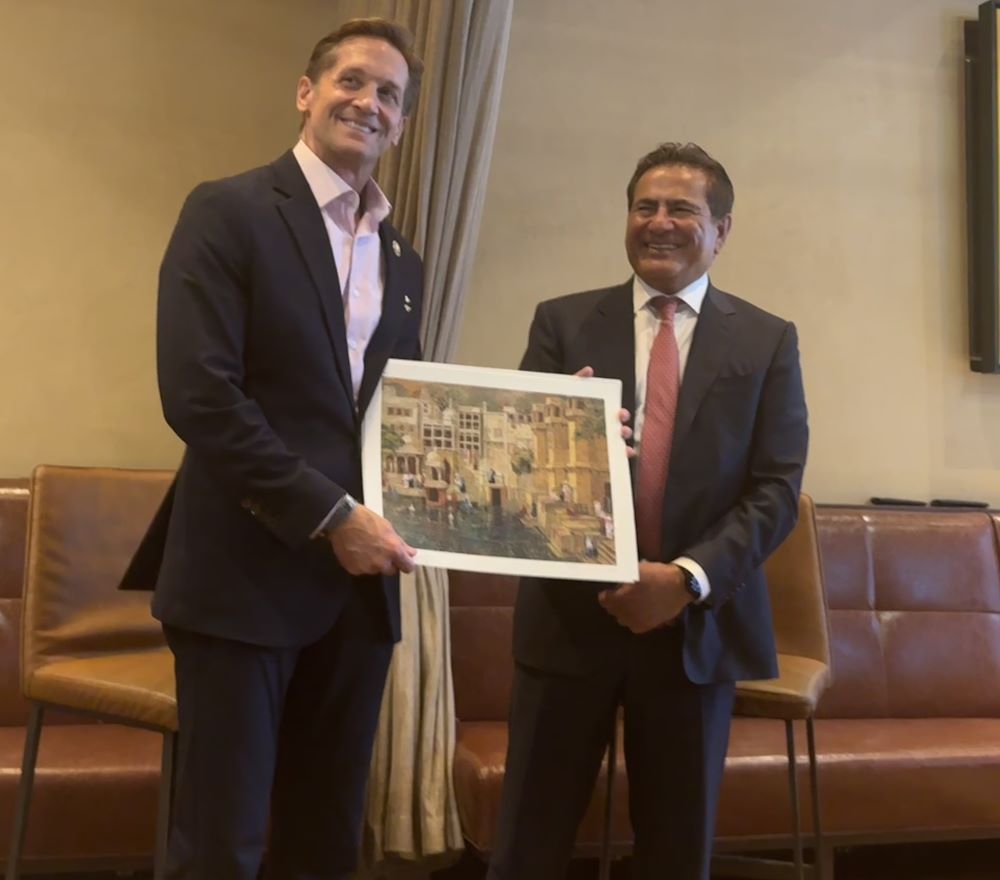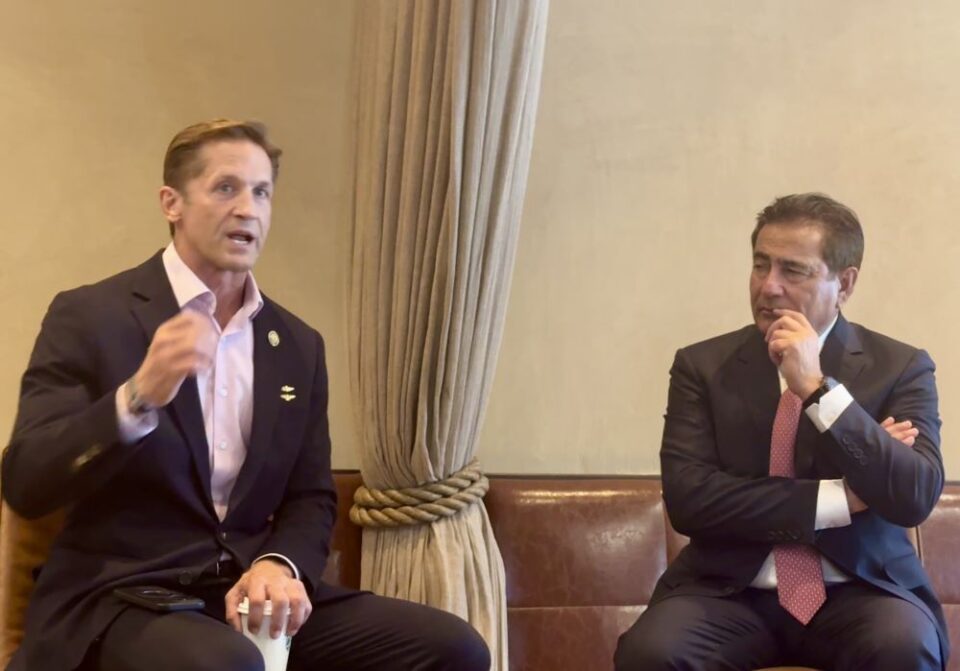BY JYOTHSNA HEGDE
Alpharetta, GA, August 30, 2025: A group of Indian American business and community leaders met with Congressman Rich McCormick (GA-7) for a private roundtable luncheon hosted in partnership with the U.S.–India Strategic Partnership Forum (USISPF). The event, held at South City Kitchen in Avalon, brought together voices from across metro Atlanta to discuss the future of U.S.–India relations.
The wide-ranging discussion, moderated by Mukesh Aghi, President and CEO, US-India Strategic Partnership Forum, touched on trade, energy, immigration, and global politics. Community members raised concerns about trade barriers, sanctions, and immigration backlogs, while also stressing the importance of building stronger ties between the two democracies.
On energy and trade, several participants noted that India often has to balance its relationships with the United States, Russia, and China. Rising tariffs and sanctions, they said, risk undermining the economic partnership. Others pointed to China’s growing influence and the role of BRICS, urging Washington to build deeper trust with India to avoid pushing it closer to rival powers.

Congressman McCormick, who co-chairs the House India Caucus, listened to the concerns and emphasized dialogue. “It’s important for me to hear directly from communities like yours so I can better understand how these global issues affect people locally,” he told attendees. He stressed that democracies working together benefit everyone “whether that’s in security, trade, or innovation.”
Immigration was another key issue. Leaders expressed frustration with limits on H-1B visas, long green card backlogs, and restrictions on international doctors under J-1 visas. They argued these policies hurt families and deprive the U.S. of much-needed skills.

McCormick acknowledged the concerns. “We need reforms that are fair, that reward merit, and that also serve the needs of our country,” he said. He praised Indian Americans for their contributions in medicine, technology, education, and small business, noting that nearly one in five physicians in the U.S. is of Indian origin.
Atlanta’s Indian American community — one of the fastest-growing in the Southeast — has become an influential force in business, philanthropy, and politics. The meeting with McCormick reflected that growing role.
While present challenges dominated the conversation, participants also recognized the steady progress in U.S.–India relations since the landmark civil nuclear deal of 2008. Cooperation has expanded in defense, technology, counterterrorism, and most recently through the Quad partnership with Japan and Australia.
McCormick closed the meeting by calling for continued dialogue and mutual respect. “We may not agree on every detail,” he said, “but if we keep listening to one another and working together, we can build a more stable, prosperous future for both nations.”



